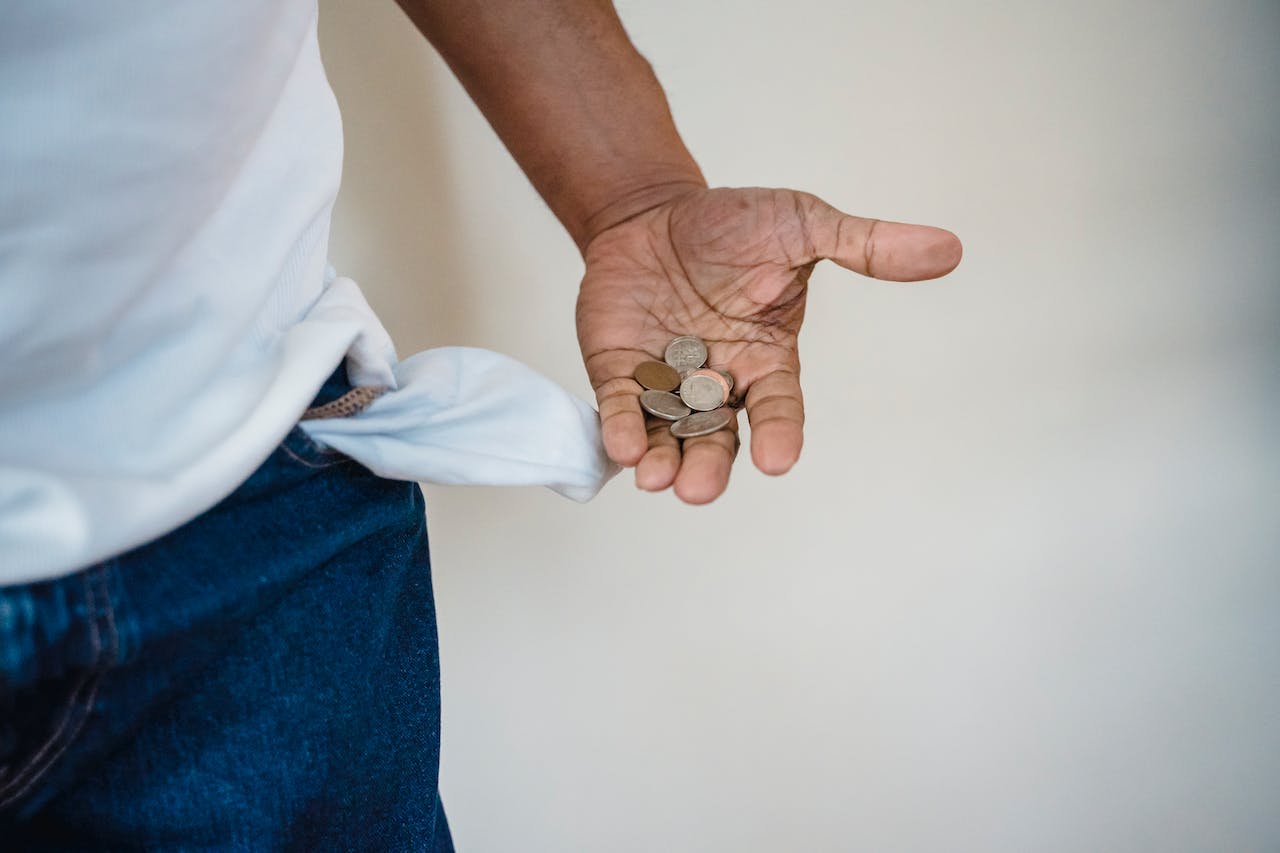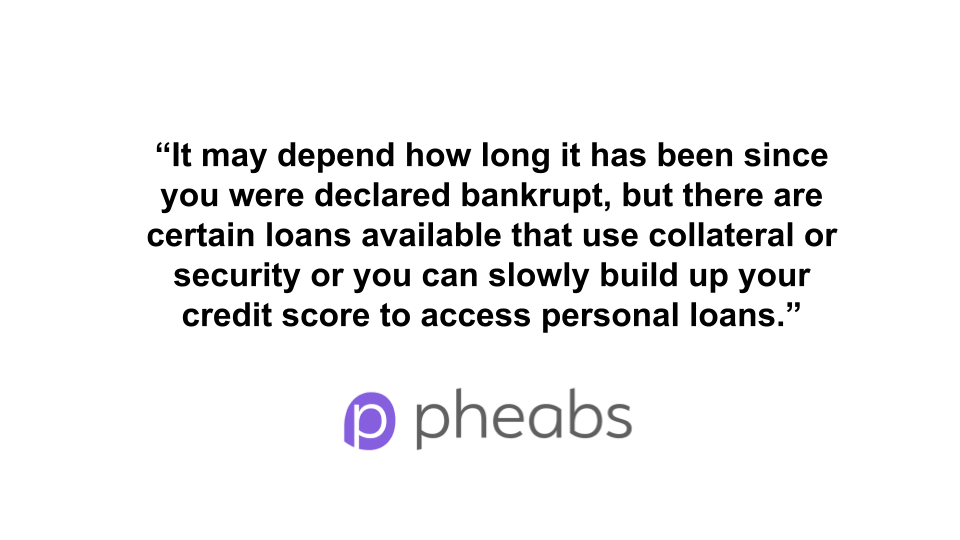It is possible to get a personal loan after filing for bankruptcy, perhaps through the use of collateral loans, co-signer loans or using a credit union. However, you will need to demonstrate an improved credit score that shows you can keep up with repayments on time and a stable income to support this.
Although around 400,000 people declare bankruptcy in the US every year, it is unsurprising that they still may need a personal loan or to borrow money for emergencies, school fees, household repairs and more.
The average personal lender would require at least fair credit scores to be able to offer you a $500 loan or $1,000, but there are some companies who are willing to take a view on those with bankruptcy in their past and if their personal and financial circumstances have improved.
Why Do People Go Bankrupt?
There are a number of reasons why people go bankrupt. In addition to the increasing cost of living, there are other factors such as going out of business, unemployment, illness, divorce and even some bad luck. But life continues to move on and households will always have a need for credit , especially if bankruptcy has restricted people from accessing usual credit cards and other personal loans.
Types of Loans You Can Get After Bankruptcy
- Cosigner loans
- Home equity loans
- Credit unions
- Collateral loans (such as title loans)
Getting New Personal Loan May Depend On The Type of Bankruptcy
When you declare bankruptcy, there are effectively two types, according to US Courts Gov:
- Chapter 7 – you have to sell your assets to pay off your debts and it stays on your credit report for an entire 10 years. This is because you still own assets such as a car, home or valuables that can be used to recover the losses of your debtors.
- Chapter 13 – you do not have to sell any of your assets, but instead come up with a 3 to 5 year plan to repay your debts. This is also known as repayment bankruptcy and it will stay on your credit report for 7 years.
Although it might seem that Chapter 13 looks more desirable if you need a personal loan, this is not necessarily the case. In fact, under Chapter 13, you are not encouraged to take out new forms of credit and you may have to ask the court for permission to apply and for it to be approved. Plus, your loan may only get granted in certain circumstances such as paying for medical or funeral expenses.
How Long It Has Been Since Your Bankruptcy
The time since your bankruptcy was declared can be a consideration for a lender when deciding whether to give you a personal loan or not. Whilst bankruptcy can stay on your file for 7 to 10 years, the more time that has passed can help, especially if you have started to build up your credit score in this time.
There are a number of ways to build up your credit score and whilst it usually helps if you have paid off loans and credit cards, this can be tricky if you cannot take them out in the first place. But if you can pay off any remaining debts quickly and be up to date with any repayments relating to your mortgage, rent, cell phone, utilities and more, these are all things that can help.
If your 7 or 10 year stint has passed and you find that you are up to date with all repayments in your day-to-day life, a personal lender will be able to review your loan application openly.
What Types of Personal Loans Can You Get After Bankruptcy
Being approved for unsecured loans may be tricky, because these are usually based on having a good or fair credit score – so the only type of loan which may consider you is a payday loan. This is a loan ranging from $100 to $2,500 and is often available for people with bad credit. You will need to demonstrate a recent repayment history for any other bills or financial products, be employed and have a stable income and residence to show that you are an eligible candidate.
If you belong to a credit union, they tend to have some options available for people who have been long-term members. Again, you will need to demonstrate a regular income and stable employment to be eligible.
What Can I Do To Improve My Chances Of Getting a Personal Loan After Bankruptcy?
Improve your credit score – Making sure that your credit score is constantly improving can only help you access more loans and credit and at affordable rates too. You can use credit reporting tools that can track your credit score in real-time and give you suggestions to constantly improve it. But starting by making sure all your debts are paid off on time is the best approach including credit cards, bills and any other outstanding loans. For someone who has been recently bankrupt, this can take some time to build up again, but using a tool to help can accelerate this a bit.
Use prequalify loan engines – There are various websites and brokers such as Pheabs who can help you determine your eligibility for a loan using a prequalifying tool. By submitting a loan application and stating how much you wish to borrow, how long for and including your details, your request will be run against 50+ lenders and the best offers available will be displayed. Some of the rates may be higher than average and some offers may require collateral and security, but it can be a huge timesaver and also protect your credit score because you don’t have to appl individually to dozens of lenders.
What Are Some Alternative Loans That You Can Get After Bankrupcy?
Cosigner Loans
With a cosigner loan, this is where you have someone you know such as a parent, spouse or close friend to act as your cosigner. If they have a homeowner status and good credit score and are willing to cosign your loan agreement, this adds a lot of extra security and credibility to your loan application. This certainly helps if you have been bankrupt and are looking to get a loan. The only thing to be aware of is that the cosigner is fully responsible to repay the loan if you cannot and therefore it could create some conflict and strain in the relationship if not managed well.
Title Loans
With a title loan, you can borrow against your car. If you owe the vehicle partly or outright, you can temporarily hand over the deed of the vehicle to the title loan lender and you can borrow $300, $500 or $5,000 depending on the car’s value and condition. Since you are using your car as security, you risk this being repossessed by the lender if you are unable to keep up with repayments.
Home Equity Loans
If you own a home outright, either because you purchased it or inherited it, you can borrow against this asset. The rates are typically low too, because a house has a lot of long term value. But note that if you struggle to keep up with payments, this can be at risk of foreclosure.
401k Loan
With a 401k loan, you are borrowing from your future retirement funds and this can be an option if you have built up a lot of money into this account and are in desperate need of funds. However, the rates charged can be high and there could be penalties if you take it out too early. You will also be losing out on potential investment growth that could come from the 401k and indeed losing out on your retirement.
Beware of Personal Loan Scams
In practice, it should be quite difficult to get a loan if you have been recently bankrupt or in the last few years. For lenders, their entire business model is the ability to get repaid on their loans and if you have been bankrupt, it may suggest some challenges in getting back their money based on your history.
With this in mind, you may need to be aware of any potential personal loan scams, including those that offer no credit checks, require upfront payments or guaranteed loans. You should always do some background on any lenders that you potentially borrow from and check everything from their social media, to the email address they sent it from and check with the regulator to see that they have a license.





